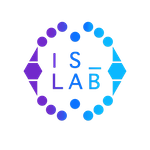K. Kravari, N. Bassiliades, “A Rule-Based eCommerce Methodology for the IoT Using Trustworthy Intelligent Agents and Microservices”, Proc. 2nd International Joint Conference on Rules and Reasoning (RuleML+RR 2018), 18-21 Sep 2018, Luxembourg, Lecture Notes in Computer Science, vol 11092, Springer, pp. 302-309.
Author(s): K. Kravari, N. Bassiliades
Keywords: Multi-agent Systems, Defeasible Reasoning, Trustworthiness
Tags:
Abstract: The impact of the Internet of Things will transform business and economy. This network of intercommunicating heterogeneous Things is expected to affect the commerce industry by driving innovation and new opportunities in the future. Yet, this open, distributed and heterogeneous environment raises challenges. Old eCommerce practices cannot be sufficiently applied while trustworthiness issues arise. This study proposes a rule-based eCommerce methodology that will allow Things to safely trade on the network. The proposed methodology represents Things as Intelligent Agents since they form an alternative to traditional interactions among people and objects while they are involved in a rich research effort regarding trust management. It also combines Intelligent Agents with the microservice architecture in order to deal with Things heterogeneity while it adopts the use of a social agent-based trust model. Well-known semantic technologies such as RuleML and defeasible logic is adopted in order to maximize interoperability. Furthermore, in order to deal with issues related to rule exchange with no common syntax, the methodology is integrated to a multi-agent knowledge-based framework. Finally, an eCommerce scenario is presented, illustrating the viability of the approach.
